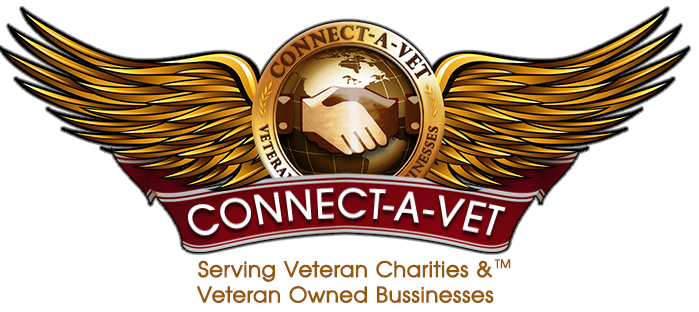The exploration of alternative treatments for PTSD, TBI, depression, and suicide prevention among combat veterans has led to renewed interest in psilocybin and other psychedelic substances. Emerging research suggests that these compounds may offer a novel approach to mental health care, particularly for conditions resistant to conventional therapies. This article delves into the potential benefits and drawbacks of psilocybin, explores how it may function within the brain, and examines other natural remedies that could support veterans in overcoming mental health challenges.
The Promise of Psilocybin in Mental Health Treatment
Psilocybin, a naturally occurring compound found in certain mushrooms, has been used in various cultural and religious practices for centuries. In recent years, it has garnered scientific attention for its potential to treat a range of mental health conditions, including PTSD, TBI, and depression, conditions that disproportionately affect combat veterans.
How Psilocybin Works in the Brain
Psilocybin’s effects on the brain are profound and multifaceted. Upon ingestion, psilocybin is metabolized into psilocin, a compound that interacts with serotonin receptors, particularly the 5-HT2A receptor. This interaction leads to altered perception, mood, and cognition, often described as a “psychedelic experience.”
One of the most intriguing effects of psilocybin is its ability to stimulate neurogenesis—the growth of new neurons—and enhance neuroplasticity, the brain’s capacity to reorganize itself by forming new neural connections. This is particularly significant in regions of the brain responsible for emotion and memory, such as the hippocampus and the amygdala. By promoting neurogenesis and neuroplasticity, psilocybin may help “rewire” the brain, reducing the impact of traumatic memories and fostering healthier emotional processing.
- PTSD: For individuals with PTSD, psilocybin can diminish the intensity of traumatic memories, enabling more effective engagement with therapeutic interventions. By altering the brain’s response to trauma, psilocybin may facilitate a deeper integration of experiences, reducing the grip of past events on current mental health.
- TBI: In cases of TBI, psilocybin’s neurogenic properties may help repair and restore damaged neural networks. The brain’s ability to recover from injury could be enhanced, improving cognitive function and emotional stability.
- Depression and Suicide: Depression often involves rigid, negative thought patterns. Psilocybin’s ability to enhance neuroplasticity may disrupt these patterns, fostering more adaptive, positive ways of thinking. This shift can lead to a significant reduction in depressive symptoms and suicidal ideation.
Benefits and Risks of Psilocybin Therapy
The potential benefits of psilocybin therapy are substantial, but they come with
important caveats.
Positive Outcomes
- Enhanced Emotional Processing: Many patients report a newfound ability to confront and process deeply buried emotions and memories, leading to significant therapeutic breakthroughs.
- Improved Cognitive Flexibility: Psilocybin’s promotion of neuroplasticity can result in long-term improvements in mood, cognitive function, and emotional regulation.
- Symptom Reduction: Clinical trials have demonstrated significant reductions in symptoms of PTSD, depression, and anxiety following psilocybin therapy. These effects can be long-lasting, offering hope for sustained recovery.
Potential Negative Effects
- Adverse Psychological Reactions: Some individuals may experience anxiety, paranoia, or psychological distress during the psychedelic experience. These reactions, though temporary, can be intense and unsettling.
- Risk of Misuse: Despite its therapeutic potential, psilocybin carries a risk of misuse and dependency, particularly outside a controlled therapeutic setting.
- Ethical and Regulatory Concerns: The use of psychedelics in therapy raises important questions about long-term safety, ethical administration, and the need for regulatory oversight. Ensuring that these treatments are administered responsibly is crucial to their success.
Other Natural and Holistic Approaches
In addition to psychedelics, other natural remedies and lifestyle interventions are being explored for their potential to support mental health among veterans.
Omega-3 Fatty Acids
Omega-3 fatty acids, found in fish oil, are known to support brain health. They play a crucial role in maintaining the structure of brain cells and promoting cognitive function. Research suggests that omega-3 supplementation can improve mood and reduce symptoms of depression, making it a valuable tool in a comprehensive mental health strategy.
St. John’s Wort
St. John’s Wort is an herbal remedy traditionally used to treat mild to moderate depression. It is believed to work by increasing levels of serotonin, dopamine, and norepinephrine in the brain-neurotransmitters that influence mood and emotion.
While effective for some, it can interact with other medications, so careful consideration is necessary.
Ashwagandha
Ashwagandha is an adaptogenic herb that helps the body manage stress. It has been shown to reduce cortisol levels, the body’s primary stress hormone, which can be beneficial for veterans dealing with chronic stress and anxiety. Its calming effects can support overall mental well-being.
Vitamin D
Vitamin D deficiency has been linked to depression and cognitive decline. For veterans, particularly those who may not get sufficient sunlight exposure, supplementing with vitamin D can improve mood and support cognitive health.
Mindfulness and Meditation
Mindfulness and meditation practices have been shown to reduce symptoms of PTSD and depression by promoting emotional regulation and reducing stress. These practices encourage present-moment awareness, helping individuals break free from the grip of traumatic memories and negative thought patterns.
Conclusion
The exploration of psilocybin and other natural remedies for treating PTSD, TBI, depression, and preventing suicide among combat veterans represents a promising shift in mental health care. Psilocybin’s potential to stimulate neurogenesis and neuroplasticity offers a novel approach to healing the brain from the deep wounds of war. However, the benefits must be carefully weighed against the risks, ensuring that these therapies are administered responsibly within a regulated framework.
Beyond psychedelics, a range of natural supplements and lifestyle interventions can play a supportive role in mental health treatment. By integrating these approaches into a comprehensive care plan, it may be possible to help veterans not only recover from their injuries but also thrive in their post-service lives. As research continues to advance, the hope is that these therapies will offer new avenues for healing, reducing the heavy toll of mental health struggles among those who have
served.

